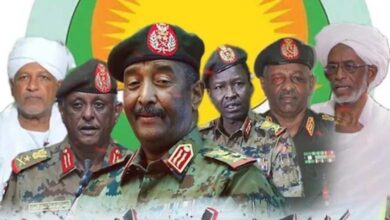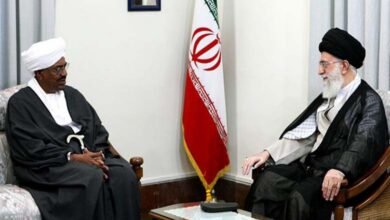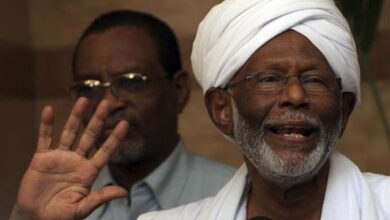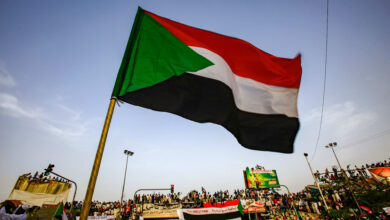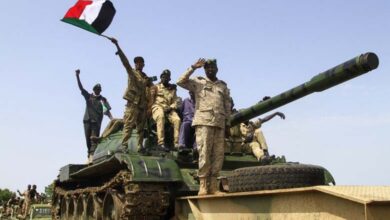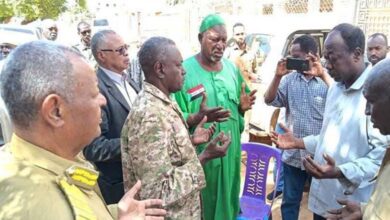Role of the UAE in Somalia: Rescue Efforts for “Land of the Seas” from Terrorist Threat
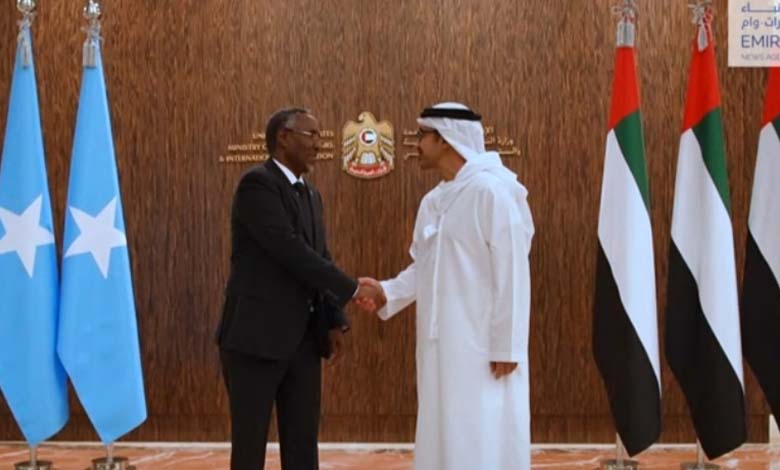
The United Arab Emirates, which spearheaded a historic project to the Security Council, adopted mid-last year, on tolerance to address hate speech and extremism, during its membership in the international organization, has already translated its commitment through various forms of besieging terrorism, uprooting its discourse, and confronting its elements on the regional map.
The announcement of the martyrdom of 3 UAE soldiers in Somalia last Saturday appeared surprising to some, as the country that has long declared that combating terrorism is a humanitarian goal before it is a security one has committed to its approach without fanfare.
In this context, the Washington Institute for Near East Policy, in a previous analysis, pointed out that the UAE, within the framework of its missions in Afghanistan, Iraq, Syria, and Yemen (where it contributed with the international coalition forces against ISIS and the Arab coalition in Yemen), has proven that it can contribute with real military capabilities, and that its presence in Somalia, upon the request of Mogadishu, enhances the effectiveness of international efforts to confront the terrorism of the al-Shabaab movement.
Experts believe that the UAE’s efforts have greatly contributed to the Somali army achieving rapid field victories against the al-Shabaab movement, one of the richest and most dangerous terrorist organizations in Africa, linked to the terrorist organization “Al-Qaeda,” emphasizing that the movement’s loss of vast areas in the country’s center during the past year is one of the most prominent indications of the importance of cooperation between Mogadishu and the UAE.
Emirati-Somali Security Cooperation
During a visit by Abdulkadir Mohamed Nur (Jamal), the Somali Defense Minister, to the UAE in January of the previous year, Mogadishu signed an agreement on military and security cooperation and counterterrorism with the UAE.
At that time, the Somali minister affirmed that this agreement is based on the historical relationship between the two countries and reflects the independence, sovereignty, and common interests of the two brotherly peoples.
However, the Emirati role began before that for decades, where the Arab country participated in many missions under the UN umbrella to rescue the African country from the fire of terrorism and the dangers of famine.
Moreover, the current Emirati presence in Somalia came at the request of Mogadishu within the framework of cooperation between the two countries and is supported by cooperation agreements and memoranda of understanding signed in January of the previous year.
The Emirati military presence began in 1993 and 1994 when the UAE participated with 640 of its “duty forces” in the humanitarian mission under the Unified Task Force, which consisted of 37,000 soldiers in Somalia, and the UAE contributed to the United Nations Operation in Somalia II (UNOSOM II) peacekeeping mission, providing military units and a field hospital, and three of its soldiers were martyred in battles at that time.
The UAE also opened a training center in Mogadishu, where thousands of Somali soldiers were trained, established training centers and a hospital, and paid the salaries of 2407 soldiers.
Emirati Presence in Somalia
The UAE’s policy towards Somalia has identified 4 key issues expressed clearly during its membership in the Security Council.
In a session on Somalia in February 2022, the UAE at the Security Council highlighted 4 issues:
First: Focus on supporting the political process as the basis for achieving sustainable peace in Somalia. Second: The importance of providing assistance to Somalia in addressing security threats that hinder sustainable peace-building, especially the terrorist al-Shabaab movement, which continues to launch attacks. Third: The importance of delivering humanitarian aid fully and safely amid the displacement wave caused by deteriorating security conditions and natural disasters. Fourth: Working to support Somalia in addressing the repercussions of climate change, which have all led to an increase in food insecurity.
Based on this, the UAE established its vision for the priority needs of Somalia, which included:
- A pivotal consultative and training role in qualifying security forces
- Contribution to operations against the terrorist al-Shabaab movement
- Political support on the international scene
- Drawing attention to the risks of climate change in the country experiencing successive natural disasters and threatened with famine.
- Vital infrastructure, such as hospitals and schools, and providing support in the fields of health and education to improve quality of life and support societal stability
- Supporting efforts to empower women in Somalia
-
Killing of Emirati soldiers in “terrorist act” in Somalia
Emirati Achievements
After 18 years and 3 multinational peace missions, Somalia is preparing to assume full security responsibility, as the Transitional Federal Government Mission in Somalia (AMISOM) is preparing to hand over its tasks and withdraw from the country during the current year.
The UAE has consistently emphasized in the Security Council the need to ensure the transfer of security responsibilities to Somali security forces through careful steps to prevent leaving a vacuum for the terrorist al-Shabaab movement to enhance its control or expand its scope.
The Emirati efforts have been reflected in achieving successive victories for the Somali forces in the country’s center after liberating vast areas from the grip of the terrorist movement.
In this context, the United Arab Emirates has:
- Financed the training and arming of 3,000 Somali military personnel from the military police, with the aim of assuming responsibility for the security of the capital.
- Covered the salaries of newly trained forces and financed training abroad for Somali forces at the request of Mogadishu and under the military cooperation agreement between the two countries that defines this framework.
- Contributed to the successes achieved by the Somali army in regaining extensive areas in the country’s center and conducting targeted strikes in the south.
- Trained 5 battalions in the Somali army inside and outside the country, 3 of which actively participated in the war against terrorism and the fierce battles between the Somali army and the terrorist al-Shabaab movement.
- Pushed the Security Council in December last year to lift the arms embargo imposed on the Somali government since 1992, in order to enhance the authorities’ capabilities to combat terrorism.
-
Somalia criminalizes extremist propaganda, details
The Role of the UAE in the Experts’ Assessment
In their discussions, many experts (including the Egyptian expert Major General Mohamed Abdel Wahed, the Somali military analyst Colonel Ahmed Abdullah, and the Somali researcher on security and political issues in the African Horn Abdul Rahman Sahal) agreed on the following regarding the successful Emirati role in Somalia:
- The Emirati military presence came at the request of Mogadishu to contribute to the training of forces under a military and security cooperation agreement concluded between the two countries.
- The Emirati role has achieved tangible positive results through training and financing to cover the salaries of the forces.
- UAE efforts on the international stage have been a decisive factor in lifting the arms embargo, enabling the authorities to continue achievements in the war against the terrorist al-Shabaab movement.
-
Because of terrorists… UAE bans Somaliland passports
Decline of Terrorism in Somalia
Over the past two years, the Somali al-Shabaab movement and its terrorist operations have noticeably declined, and they have begun losing many territories they once controlled under the pressure of strikes by the Somali army, which the UAE forces have contributed to training. This has prompted the “al-Shabaab” terrorist movement to claim responsibility for the recent attack that resulted in the martyrdom of 3 Emirati soldiers and a Bahraini officer during a training mission at a military base in the Somali capital.
The “al-Shabaab” movement is the armed wing of the former Somali Islamic Courts Union, which seized parts of southern Somalia during the second half of 2006.
The al-Shabaab movement has carried out terrorist attacks in Somalia, Kenya, Uganda, and Djibouti. It is responsible for the suicide bombings that occurred on July 11, 2010, in Kampala, resulting in the deaths of 76 people, including American citizens.
In September 2013, the al-Shabaab movement launched a major attack on the “Westgate” shopping center in Nairobi, resulting in a siege that lasted for several days, during which at least 65 civilians were killed, in addition to six soldiers and police officers, and hundreds were injured.
In April 2015, the al-Shabaab movement launched an attack using small arms and grenades on Garissa University College in Kenya, resulting in the deaths of 148 people.


